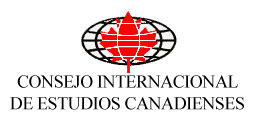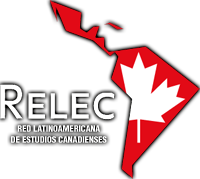Canada’s Study and Work Permits for International Students
06/04/2015
Determine your eligibility
If you are enrolled in a study program lasting 6 months or more you must apply for a study permit.
To be eligible to study in Canada, you must:
Have been accepted by a designated learning institution (DLI) in Canada. A list of DLIs is available at
www.cic.gc.ca/english/study/ study-institutions-list.asp;
Prove that you have enough money to pay for your tuition fees as well as the living and return transportation costs for
yourself and any family members who come with you to Canada;
Be in good health and willing to complete a medical examination, if necessary.
Apply for a study permit
You must apply for a study permit from outside of Canada,
either online or in person at the visa office responsible for your
country or region. A list of visa application centres (VACs) is
available at www.cic.gc.ca/english/information/offices/vac.asp.
A document checklist, as well as all necessary forms are
available at www.cic.gc.ca/study. Note that many visa offices
have specific local instructions on their respective websites
about which documents you must submit with your application.
Original documents in languages other than English or French
must be accompanied by a certified translation.
A list of countries whose citizens are required to provide in-person biometrics within 30 days of submitting their
application is available at www.cic.gc.ca/english/visit/biometrics.asp.
Obtain your study permit
Upon arrival in Canada, you must present all required documents to an officer from the Canada Border Services Agency
(CBSA). Once you meet all the necessary conditions, a study permit will be issued to you. The list of required documents is
available at www.cic.gc.ca/english/study/study-arriving.asp.
Renew your study permit
You can apply to renew your study permit should you wish to study longer. It is important to apply well before your permit
expires. More information on how to renew your study permit is available at www.cic.gc.ca/english/study/study-extend.asp.
Work on and off campus
If you are a full-time student with a valid study permit pursuing an academic, professional, or vocational training program
that leads to a degree, diploma or certificate, you will be:
Eligible to work on and off campus without a work permit;
Allowed to work on and off campus for up to 20 hours per week during a regular academic session and full time during
regularly scheduled breaks;
Welcome to have your spouse or common-law partner also apply for a work permit.
If co-op or internship employment is an essential part, not forming more than 50%, of your program of study, you must apply
for a work permit after having successfully received your study permit.
More information is available at www.cic.gc.ca/english/study/study.asp.
Work while you study in Canada
To be able to work in Canada, you must be registered and enrolled at a designated learning institution (DLI). You must also
get a Social Insurance Number (SIN); more information is available at www.servicecanada.gc.ca/eng/sc/sin/.
Stay and work in Canada after graduation
If you have graduated from a designated learning institution and are interested in working in Canada after graduation, you
can apply for a work permit under the Post-Graduation Work Permit Program (PGWPP). A Post-Graduation Work Permit may
be issued for the length of the study program, up to a maximum of three years. More information is available at
www.cic.gc.ca/english/study/work-postgrad.asp
If you are interested in staying and working in Canada on a more long-term basis you can apply for a number of programs,
each with its own requirements. These programs include:
The Canadian Experience Class, learn more: www.cic.gc.ca/cec
The Federal Skilled Worker Program, learn more: www.cic.gc.ca/skilled
The Provincial Nominee Program, learn more: www.cic.gc.ca/pnp
Other useful links
www.educationau-incanada.ca: The official Study in Canada portal of the Government of Canada.
www.scholarships.gc.ca: The official Government of Canada website for information on federal and provincial scholarships.














